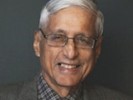Indians who hoped that Kashmiris would become warmer towards New Delhi were probably disappointed when the Supreme Court (SC) ratified the extinguishing of Article 370. Actually, by waiting for more than four years to look into the validity of the Article that was suddenly terminated in August 2019, the SC had already signalled to Kashmiris that their grievances may not have been the Court’s top priority.
Most interestingly, however, justice Sanjay Kishan Kaul of the Supreme Court, while concurring in the verdict, recommended, in a significant “epilogue” (as he termed it), a “truth and reconciliation commission” (TRC) for “a collective telling of the truth about Jammu and Kashmir” from the 1980s onwards. What was lacking, justice Kaul said, “is a commonly accepted narrative of what happened”.
He was not asking for another criminal court but only for a “humanised and personalised process enabling people to share what they have been through uninhibitedly”. He spoke of “the wounds of history”, of the need for “healing”, of his own “anguish” (as a Kashmiri), and of being “constrained” to present his “epilogue”.
Before commenting on justice Kaul’s courageous suggestion, let me note an important observation, which is that the top court’s verdict may have made the federal limb of India’s body politic more vulnerable than ever before. Emboldened by the verdict, New Delhi, it seems, could turn any portion of any state into a Union Territory today or tomorrow.
An additional point may be relevant to a discussion of justice Kaul’s suggestion of a TRC. At this juncture, when countries in our neighbourhood are splitting up emotionally even if maps thus far have been maintained by force, India is sadly failing to give a lead.
Myanmar, an immediate neighbour of ours (in fact, a country which for a time was part of British-ruled India) is perhaps the best current example of a country threatening to come apart. The army junta that seized power in February 2021 is today struggling to keep multi-ethnic, multi-lingual Myanmar in one piece. Pakistan and Sri Lanka also face severe divisions along ethnic, linguistic, sectarian or religious lines.
As I write this, word comes that leaders of the Naga community living in the hills of Manipur have asserted their separateness from the Kukis of the same hills. Nagas and Kukis may both be “tribal” and by religion, they may both be largely Christian. However, it is being insisted that the two groups are totally different, Manipur’s Meitei majority being Hindu by religion.
We’ve been told for some time that Manipur’s sad tale is the story of a religious divide. Yet anyone with the slightest knowledge of Manipur’s history also knows that for a considerable period, it was the Hindu Meitei majority in Manipur that led a strong and often violent opposition to Manipur’s merger with the Indian Union, despite the latter’s large Hindu majority.
The worst of the misleading beliefs damaging our world is that people of different religions or ethnicities cannot live as equals or in peace with one another under a single national flag. Shared in the 1940s by enough Muslims and enough Hindus, this absurd belief caused the Partition of 1947. Those questioning the word “absurd” should ask why many Hindus, Muslims, Sikhs, Buddhists, Christians and Parsis from the subcontinent, and from Sri Lanka, today wish to move to the United States, the United Kingdom, Europe, Canada, and Australia, all places where people of different religions live with equal rights under a single flag.
History’s lesson seems to be that when citizens and leaders cease listening to one another, mistrust grows. People in Kashmir (Muslims, Hindus and Sikhs) didn’t listen enough to one another. Kashmiris and leaders in Delhi didn’t listen enough to one another. That rather than Article 370 may have been the real reason for “the Kashmir problem” to grow. If Manipur’s Meiteis, Kukis, and Nagas don’t talk to one another if New Delhi does not listen to Manipur’s diverse voices, Manipur’s problems will only grow.
A “humanised and personalised process” in Kashmir, “enabling people to share what they have been through uninhibitedly”, which is justice Kaul’s desire, would be a magnificent step forward. We should root for it. Yet we must also ask, can all residents of J, K and L (for Ladakh) speak uninhibitedly today? About what they have gone through? About what they are going through?
If candid conversations are also respectful conversations, progress may indeed take place in Kashmir, and on the Kashmir question, which has not gone away. Uninhibited and respectful conversations, where all sides are able to speak honestly, would also, of course, assist in Manipur and over Manipur, and all across the Northeast. India would then be addressing its own sad realities and thereby offering much-needed examples to the aching region of which we are a part. If only a dream, at least this is a good one.
Every now and then, we in India — leaders and the led — remind the world that, as our forebears announced long ago, humanity was just one large kutumbakam (family).
Do we in India speak to and about one another as members of one family? We should thank justice Kaul because he has pulled out this question from the tunnel of India’s disputes, some hotly debated, others that are silent at present but are not less agonising.
Rajmohan Gandhi’s last book was India After 1947: Reflections & Recollections (2022). The views expressed are personal





















 Toi Staff
Toi Staff Gideon Levy
Gideon Levy Belen Fernandez
Belen Fernandez Andrew Mitrovica
Andrew Mitrovica Mort Laitner
Mort Laitner Rami G Khouri
Rami G Khouri Ali Fathollah-Nejad
Ali Fathollah-Nejad Nikkei Editorial
Nikkei Editorial
